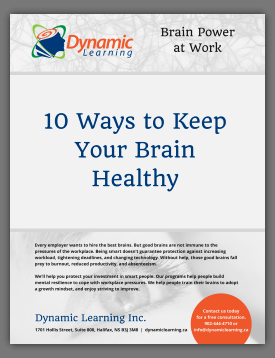I have just finished reading Scatterbrain: How the Mind’s Mistakes Make Humans Creative, Innovative, and Successful by neuroscientist Henning Beck. Now I feel much better about my scatterbrain. Here is what I learned.
It is helpful to think about your brain like a very, very large orchestra. Just as orchestra members listen to each other as they perform, so do our neurons (brain cells) and synapses (tiny spaces between the neurons) interact to create understanding and knowledge. An orchestra can play an infinite number of tunes and styles of music. Just as our dynamic brains can correlate patterns, stories, and memories to learn new insights.
Our brains are not good at dealing with lots of detail, data, numbers, and facts. Sadly that is exactly how we were expected to learn at school and later in college. That kind of massed practice is a little like trying to make lasagna by pouring all the ingredients into a pan, stirring it around, and then baking it. You would not be very pleased with the results. We learn much better by understanding. Then setting down layers of understanding, allowing our brains to produce a well-designed lasagna of new insights.
Our brains are easily bored. And they overload when we try to remember what we are reading as we are reading it. Or as we struggle to take notes when someone is speaking.
Beck says our brain flaws give us a big advantage. We marvel at the precision and consistency of computers. But computers cannot think and never question themselves. Human beings progress by asking questions and making mistakes. Our brains have evolved to make mistakes. Through mistakes we learn, we become more creative and adaptive. Just watch a 2-year child constantly exploring and constantly making mistakes… and having a wonderful time learning about the world.
We worry about our memories. We think our brains don’t always operate the way we would like. We forget stuff or we remember it incorrectly. We are easily bored and we are terrible at estimating the time it takes to complete tasks.
The purpose of our memory is to help us in the present. If our brain remembered everything, we would have to prioritize all the time. And that would be a huge load. Our brains use forgetting to allow us to develop knowledge and understanding. A computer can absorb and process billions of words, pictures, and numbers. But even with Artificial Intelligence, a computer cannot understand what it is processing.
According to Beck, Artificial Intelligence is a marketing ploy by the computer industry. Computers are not intelligent. But they can use algorithms and incredible processing speed to deal with whatever we input. They follow rules fast and efficiently but they cannot break rules. They cannot be creative with all that data. Computers are terrific at handling the stuff which humans find boring and tedious. But they cannot compete with our brains when it comes to understanding and creativity.
Understanding our scatterbrains helps us.
When learning:
- Prepare for concentrated learning sessions of 20-40 minutes, followed by 3-5 minutes breaks while you take a short walk, chat with friends, gaze out of the window, etc. Don’t check the internet as it is designed to distract you and keep your attention for longer than you want.
- Accept that your brain is easily bored and distracted. Mute your phone and use headphones to avoid being pulled away from your concentrated learning.
- Start by helping yourself grasp the big picture first, then let the details illustrate the key points.
- Focus your attention on how the information interacts with what you already know. Ask yourself questions like, “How can I use this?” “How does this information link to what I already know?” “How would this apply to me at work?” “What gaps in my own knowledge am I noticing now?” “How would I teach this to someone else?” Any one of those questions and the answers they generate for you would help embed your new learning.
- Don’t try to memorize what you are learning. Keep working to understand it and integrate it into what you already know. As you take breaks and after an overnight sleep, your brain will sort out what needs to be remembered.
- Your long-term memory has an infinite capacity and is a wonderful resource for you. It works on a reminder and re-creation process. With the right reminder, you can re-create anything you have in your long-term memory.
- You can jot down short reminders of key information by using the Mind Map technique. This is a powerful note-taking system to remember what you read. It is also a great way to draw out all your ideas for writing and presenting. See Power Up Your Brain with Mind Maps.
- Finally, use spacing and repetition to help your learning to become readily accessible. When you return from your breaks, do a quick review of what you just learned. Review again after a night’s sleep, again within a week, again within a month, and again within three months.
When working, studying, relaxing at home, exercising, and interacting with family and friends:
- Appreciate your wonderful brain. Recognize you are here because your ancestors were good at learning from their mistakes. They were adaptive and creative. And they used their missteps to trigger great ideas.
- The purpose of your memory is to act in the here and now. Work with what it offers you. As Beck points out, when people are asked where they get their most creative ideas from, 70% say under the shower, driving the car, or while doing routine tasks like washing the dishes.
- Computers can be a great help but don’t let them dominate your life. Switch off, step back, sleep and know that your fantastic brain gives you the ultimate edge.


